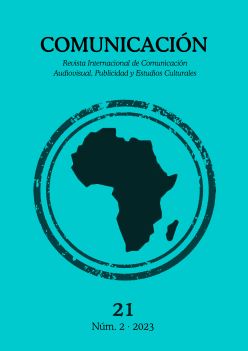Abstract
In the last two decades in Algeria, a new stream of filmmakers have tackled historically committed themes such as the civil war and exile. These films, which do not receive state funding for their content, and which are generally co-productions, distance themselves from Algerian films that glorify heroes or heroines in their attempt to create a national narrative. The directors of this cinema of deception or rebellious cinema are keen to depict Algeria's complex contemporary history, and thus heal the wounds of a very violent past. These directors also introduce the Algerian Arabic dialect and French, more classical rhythms such as raï or more modern rhythms such as rap, and do not hesitate to present an "ugly" Algeria. These are films that are gaining international recognition, but which are generally banned in their country of origin, a country where the number of women filmmakers, actresses and producers is growing.
References
Belkaïd, M. (2022). From outlaw to rebel. Oppositional documentaries in contemporary Algeria, Palgrave Macmillan.
Bournier, I., Pottier, M. (2006). Paroles d’Indigènes. Les soldats oublies de la Seconde Guerre mondiale. E. J. L.
Chenaoui, Z. (23 de septiembre de 2019). Cinéma: la sortie en Algérie de “Papicha” annulée sans explication. Le Monde. https://www.lemonde.fr/culture/article/2019/09/23/cinema-la-sortieen-algerie-de-papicha-annulee-sans-explication_6012652_3246.html
Leveau, R., Schnapper, D. (1989). Ser emigrante en Francia. En P. Ariès y G. Duby (Eds.) Historia de la vida privada. El siglo XX: diversidades culturales. (Tomo X, pp. 491-526). Taurus.
Loi n° 11-03 du 28 février 2011 relative à la cinématographie, Journal officiel de la République algérienne démocratique et populaire, Secrétariat général du Gouvernement: https://www.joradp.dz/HFR/Index.htm
Meddi A. (27 de septiembre de 2017). En Algerie la rente pétrolière a aussi permis d’acheter la culture. Middle East Eye. https://www.middleeasteye.net/fr/opinion-fr/en-algerie-la-rentepetroliere-aussi-permis-dacheter-la-culture
Ouahib, S. (2 de octubre de 2015). La polémique: Colère du ministère de la Culture contre Merzak Allouache, El Watan.
Reporters without borders (2023). Algeria. https://rsf.org/en/index
Salvarrey, T. (2021). Cine y memoria: representaciones de la guerra de Argelia en el cine francés y argelino durante los años sesenta. Revista Escuela de Historia, 20(2). http://www.scielo.org.ar/pdf/reh/v20n2/v20n2a03.pdf
Sayad, A. (1977). Les trois “âges” de l’émigration algérienne en France. Actes de la recherche en sciences sociales, 15, 59-79.
Soltane A. (2017). La nouvelle génération “Cannes” du cinéma algérien, L’Expression, 15.
Teguia, T. (2014). Entretien. Revue Vertigo, 47, 74 23.
Teguia, T. (2015) Master class avec Tariq Teguia. Centre Pompidou. https://www.centrepompidou.fr/es/ressources/media/2nRupU3
Tenfiche, S. (2019). Passé glorieux contre mémoire interdite: deux cinémas algériens antagonistes, Écrire l’histoire, 19. https://journals.openedition.org/elh/2024?lang=en
Tenfiche, S. (2020) Les co-productions algériennes avec l´Europe: standardization ou résistance?
Regards-Revue Des Arts du Spectacle, 24, 97-103. https://journals.usj.edu.lb/regards/article/view/485
Tenfiche S. (2022) Glorifier les morts ou consacrer les vivants. Une histoire esthétique et politique du cinéma algérien sous l’ère Bouteflika (2003-2019) [Tesis de doctorado]. Université Paris Cité.
Vaillant, E. (2006). L’immigration. Éditions Mila.
VV. AA. (22 de octubre de 2021). Young Women are Breaking the Silence of French Inmigrants. RIF.
https://www.rfi.fr/en/young-women-are-breaking-the-silence-of-french-immigrants

This work is licensed under a Creative Commons Attribution-NonCommercial-ShareAlike 4.0 International License.
Copyright (c) 2023 Alejandra Val Cubero

